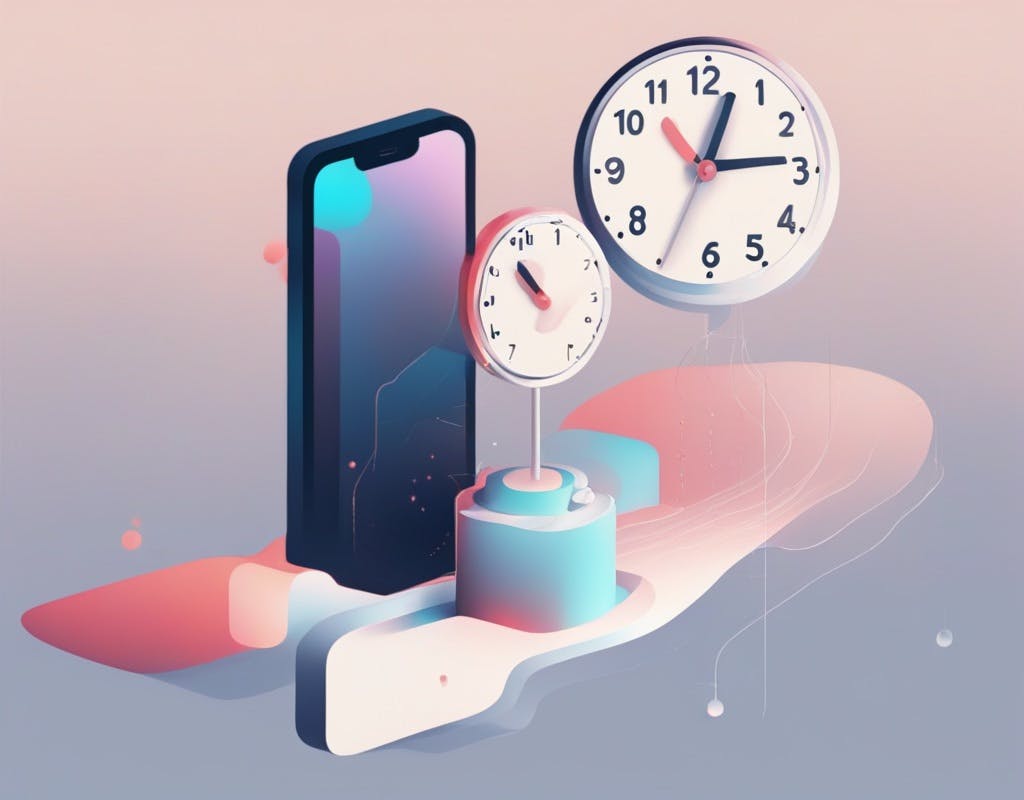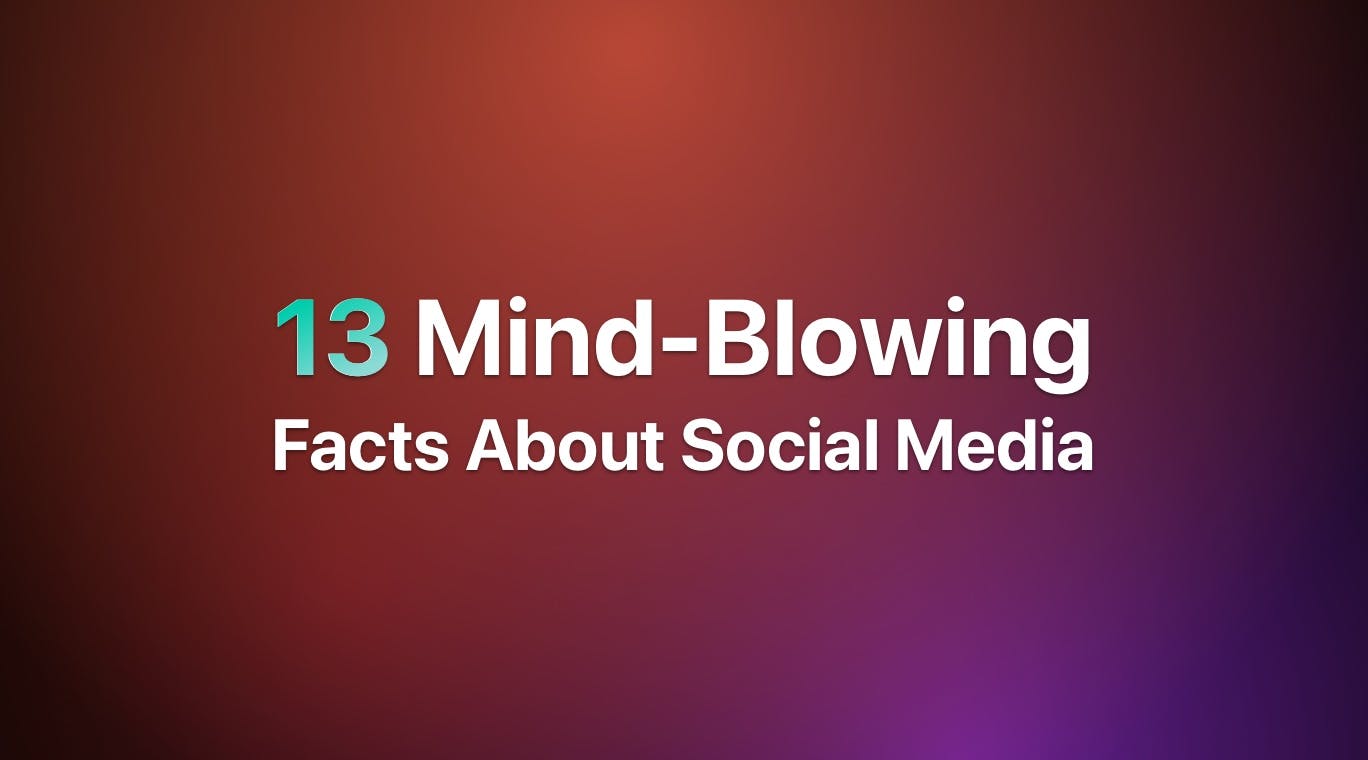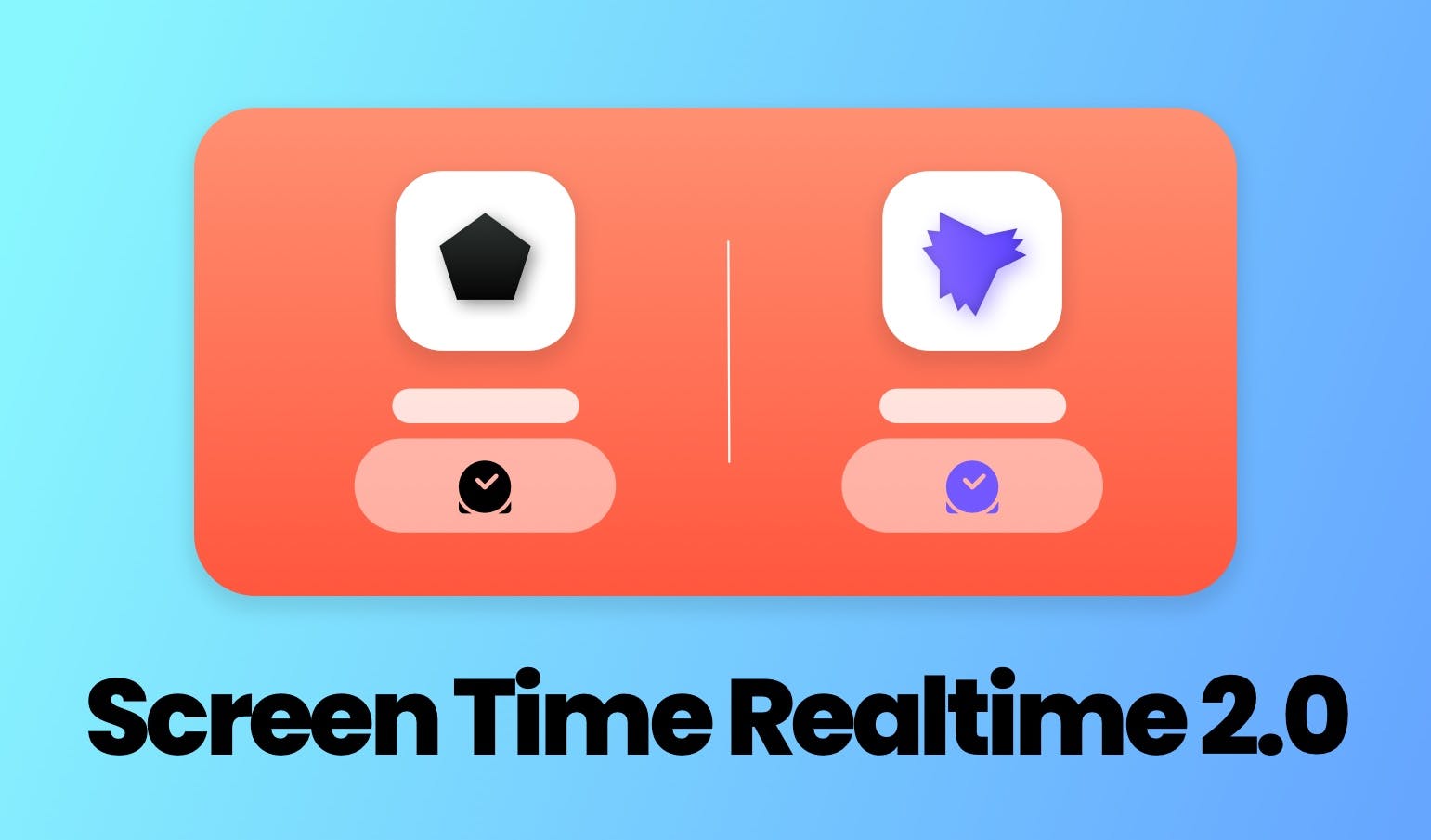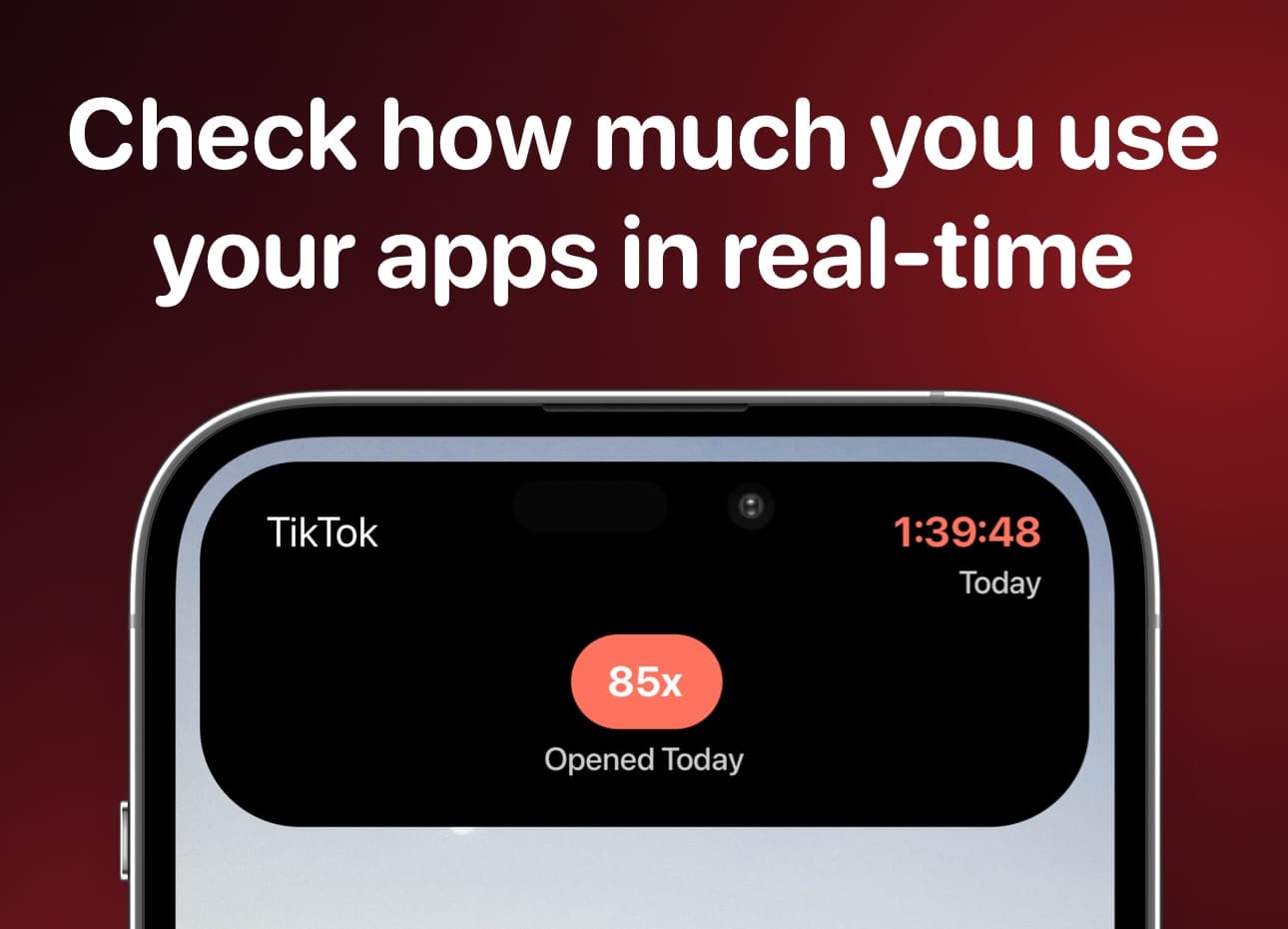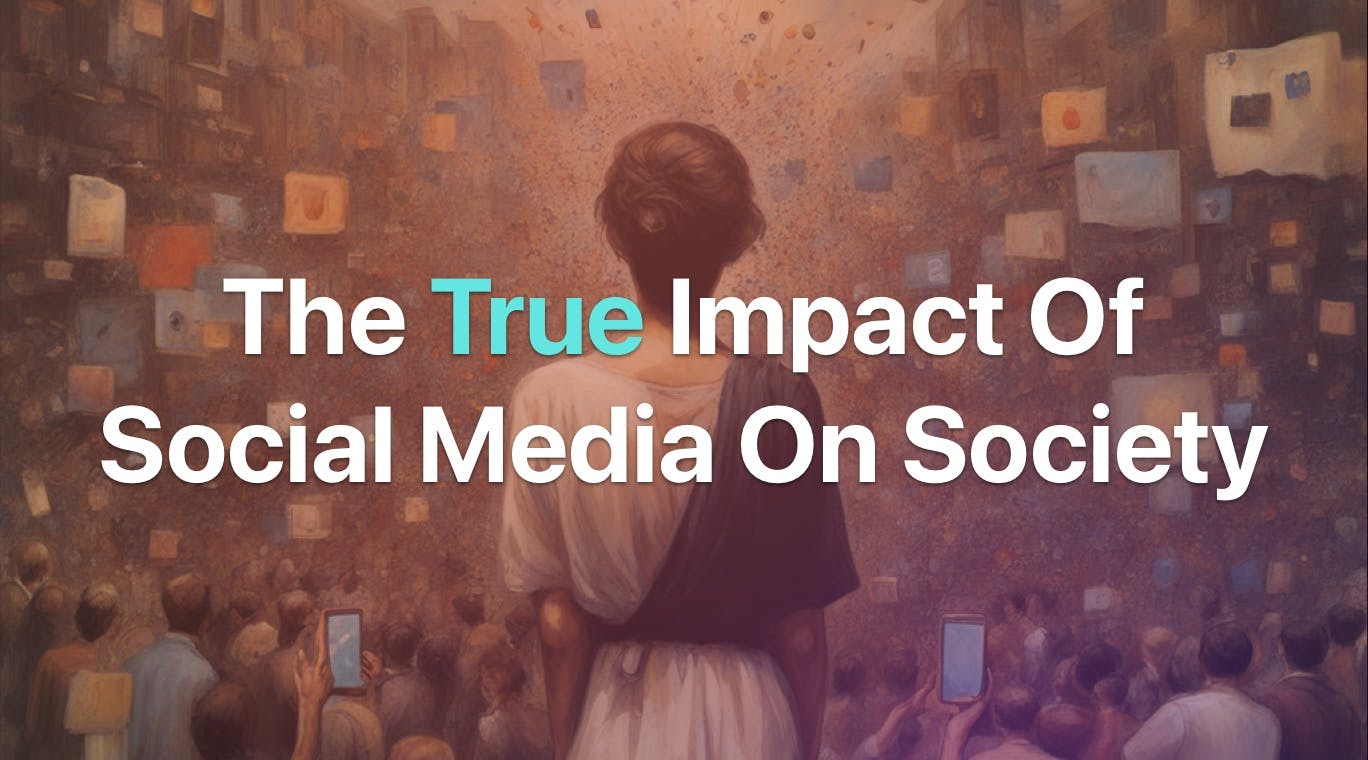
Is Social Media really changing our behavior or is it us that use it to escape our reality?
Since the inception of social media back in 1997, it has transformed the way we live our lives. It connects us to the world, allows us to share our experiences, and brings us closer to our loved ones. Yet, amid this incredible digital revolution, have you ever paused to contemplate the profound impact it has on our daily routines and overall well-being?
In this blog post, I'll get into some astonishing facts about social media that might just leave you stunned. These are the kind of insights that made me rethink my relationship with the virtual world.
The Rise of Social Media: A Brief History
A Trip Through the Social Media Time Machine: From Morse Code to TikTok
In the blink of an eye, social media has gone from a simple electronic messaging system to a global force that transformed the way we connect and interact. Let's go back in time to discover the roots and evolution of social media.

Our story begins in 1844 when Samuel Morse sent the first telegraph message from Baltimore to Washington, D.C., with the iconic words, "What hath God wrought?" Morse code was the mother of digital communication and featuring its own version of modern acronyms like "OMG" and "LOL. The true era of modern social media begann in 1997.
In the 1980s and '90s, platforms like CompuServe, AOL, and Prodigy paved the way for digital communication through email, bulletin boards, and real-time chat.
These early ventures set the stage for the first social media networks:
- Six Degrees (1997), a short-lived pioneer in online social networking.
- LiveJournal (1999), a precursor to blogging.
- Friendster (2001), which attracted millions with its basic networking features.
- LinkedIn (2002), a professional networking platform.
- MySpace (2003), a music-sharing giant that was eventually eclipsed by Facebook.
- Google+ (2012) made an entry but faced challenges, leading to its eventual end in 2018.
Fast forward to the 21st century, here's a glimpse of the leading platforms in 2023:
- Facebook (2004): With nearly 1.7 billion users worldwide, Facebook is a heavyweight in the social media arena.
- Reddit (2005): What started as a news-sharing platform has grown into a vast hub for commentary with 300 million users.
- Twitter (2006): Twitter's 2020 user base reached 22% of U.S. adults, making it a microblogging powerhouse.
- Instagram (2010): Boasting over 1 billion users, Instagram is all about visual storytelling and photo sharing.
- Pinterest (2010): A unique "pin board" concept attracted over 335 million monthly users.
- Snapchat (2011): Known for its 'stories' and 'filters,' Snapchat is a playground for creativity.
- TikTok (2016): In a short time, TikTok gathered over 800 million users, captivating the younger generation.
In just a couple of decades, social media is not just influencing our lives; it's redefining them. And the journey doesn't end here; the future of social media holds countless surprises.
A question that often comes nowadays to my mind: Is social media really changing our behavior and making us addicted or is it just us that needs an escape from our reality? Did you know that according to a new study by Harvard University, self-disclosure on social medias lights up the same part of the brain that also ignites when taking an addictive substance?

Social media provides an endless amount of immediate rewards in the form of attention from others for relatively minimal effort. The brain rewires itself through this positive reinforcement, making people desire likes, retweets, and emoticon reactions.
But let's see together the Positive aspects of social medias:
- Communicate and stay up to date with family and friends around the world. You can found friends, that you haven't seen for years and get in touch with them.
- Find new friends and communities; network with other people who share similar interests or ambitions. Imagine you are a new mom feeling alone and sleep deprived and within seconds you have other moms with the same problem ready to chat with you. Social media saved my days with my first baby in the pandemic!
- Join or promote worthwhile causes; raise awareness on important issues. You can engage more people to fight for your cause.
- Seek or offer emotional support during tough times. Sometimes it's easier to talk to somebody you don't know and to have their objective opinion and not to feel judged.
- Find vital social connection.
- Find an outlet for your creativity and self-expression.
- Discover sources of valuable information and learning. Thank to social media I know now what's the best way to clean a dishwasher and how I can repair my bike. Even my mom comes everyday with new modern tips how to do crafts with toddlers and the best one was when she knew how to prepare herself for the end of the world!
But something so big and so powerful comes with its own negative aspects:
- Multiple studies have found a strong link between heavy social media and an increased risk for depression, anxiety, loneliness, self-harm, and even suicidal thoughts.
- Even if you know that images you're viewing on social media are manipulated, they can still make you feel insecure about how you look or what's going on in your own life. It also affected me a lot after my first pregnancy, where my body changed a lot and you see all the time these perfect women with perfect body two days after birth. I was a total mess after birth and it took a while to get used to the new me, but social media can really make you feel even worse.

- Fear of missing out (FOMO) on social media can impact your self-esteem, trigger anxiety, and fuel even greater social media use, much like an addiction. Everybody knows the urge to open your Instagram or TikTok and see what your friends are doing right now or what the new trend is.
- A study at the University of Pennsylvania found that high usage of Facebook, Snapchat, and Instagram increases feelings of loneliness. You see so many people having fun and parties and you lie on your couch alone wondering what's wrong with you.
- The more you prioritize social media interaction over in-person relationships, the more you're at risk for developing or exacerbating mood disorders such as anxiety and depression.
- About 10 percent of teens report being bullied on social media and many other users are subjected to offensive comments, that can leave lasting emotional scars. I mean it's really easy to write something mean on social media where you can also hide your real name or your face and it's harder to say something mean face to face.
- Sharing endless selfies and all your innermost thoughts on social media can create an unhealthy self-centeredness and distance you from real-life connections.
The Future of Social Media
The world of social media is far from static. Emerging trends, like the rise of virtual and augmented reality, new platforms, and changing user behavior, continue to reshape this landscape. Social media's future will undoubtedly present new challenges and opportunities for all of us.
In conclusion, social media is a powerful and complex force in our lives. It connects us, entertains us, educates us, and sometimes even consumes us. Our relationship with it must be mindful and balanced. So, as you navigate the digital maze of social media, always take a deep breath and remember to prioritize your well-being and cherish the real connections that truly matter.
After all, beyond the screens, it's in the moments spent with loved ones and in the beauty of the physical world that we find life's most profound experiences.
Love, J
